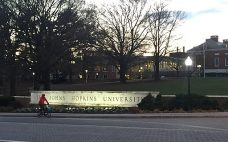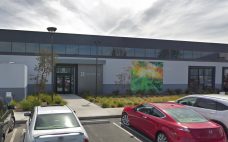Johns Hopkins University will use Orgenesisâ point-of-care processing technology for cell and gene therapy research in a collaboration announced this week. The US research University has licensed access to Orgenesisâs âpoint-of-careâ (PoC) platform which â as the name suggests â is used to develop and process cell therapies in the clinic Orgenesis CEO Vered Caplan said, âOur POCare platform is designed to provide unique cell and gene therapy solutions in a cost effective, high quality and scalable manner, using closed…

Therapeutic Class
First J&J, now Sanofi teams with BARDA to tackle coronavirus
Sanofi Pasteur has joined Johnson & Johnson as the second firm to team up with BARDA to take on coronavirus (COVID-19). According to a statement, Sanofi Pasteur will use recombinant DNA tech to make a vaccine against the virus that has sickened tens of thousands and resulted in hundreds of deaths since it emerged in China last year. The plan is to use the Sanofi technology to reverse engineer proteins isolated from the virus to produce DNA sequences. These sequences…
Charles River eyeing up HemaCare expansion and more CGT acquisitions
Charles River Laboratories says it is âseriously pursuingâ geographical expansion of its recently acquired HemaCare business as it assesses further opportunities in the cell and gene therapy space. In December last year, contract research organization (CRO) Charles River picked up HemaCare for $380 million, bolstering its cell therapy services portfolio. The firm predicted the acquisition would add at least $50 million to its 2020 consolidated revenue and expects revenue growth for the business to substantially increase over the next five…
Catalentâs $315m Masthercell buy: Frothy exuberance or the new CMO norm?
Catalent has completed its $315 million takeover of cell therapy manufacturer Masthercell. But is this latest CMO acquisition a sign of frothy exuberance, or consolidation of the new normal? Dark Horse Consultingâs Anthony Davies thinks the latter. Last week, Catalent announced it had entered into an agreement to buy Orgenesisâ third-party cell and gene therapy business Masthercell for $315 million (âŹ285 million). Yesterday the deal closed, bringing autologous and allogeneic cell therapy manufacturing and analytical services to Catalentâs capabilities. The…
Liso-cel safety data bodes well as BMS tackles CAR-T headwinds
Concerns about CAR-T safety continue to be a challenge for the sector according to Bristol-Myers Squibb, which outlined plans to address such âheadwindsâ during a Q4 call. Bristol Myers Squibb (BMS) spoke about the chimeric antigen receptor (CAR) T-cells sector last week, explaining while the market for such therapies is expanding, growth rates are not as fast as they could be. Nadim Ahmed, president of BMS hematology department, told analysts: âClearly, there have been some headwinds in the [CAR-T] marketplace and…
Merckâs biosimilar business to power NewCo spinoff
Merck & Co. reported biosimilar sales of $250 million in 2019 and says the revenues will be used to grow its spinout company NewCo, also comprising of its womenâs health and legacy brands. Merck & Co. (known as MSD outside North America) announced the creation of NewCo in line with its Q4 and full year 2019 results. The new entity will group the companyâs women’s health assets and legacy brands together, along with its biosimilars business. Left alone, Kevin Ali…
Iovance internal network aims to tweak TIL manufacturing process
Having its own facility will help Iovance intensify manufacturing of its tumor infiltrating lymphocyte (TIL) cell therapies and help to reduce the 22-day process, the firm says. In May last year, Iovance Biotherapeutics announced plans to construct a 136,000 square-foot facility in Philadelphia, Pennsylvania for the clinical and commercial production of its autologous TIL products, including its lead candidate lifileucel in Phase II trials for metastatic melanoma. Speaking last month at the Phacilitate conference in Miami, Florida, Michelle Simpson-Abelson, principle…
US FDA predicts gene therapy surge and moves to clarify expectations
Gene therapy developers targeting the US market have a clearer idea of what it will take to win approval thanks to new guidance documents issued by the FDA. The US regulator set out its expectations for developers in six documents published last week. There are final guidance documents on gene therapies for hemophilia, retinal disorders and rare diseases. In addition, there are final guidance documents on chemistry, manufacturing and controls (CMC), observational studies and on the assessment of gene therapies…
‘Lack of good CDMOsâ factor for Krystalâs $90m gene therapy plant
Krystal Biotech has broken ground on a commercial gene therapy manufacturing facility in Findlay Township, Pennsylvania. The 100,000 square-foot âASTRAâ facility, set to create 75 jobs in the Pennsylvanian town, is expected to open in late 2021 to support Krystal Biotechâs gene therapy pipeline. Krystal is developing several âoff-the-shelfâ gene therapies for rare skin diseases using its Skin TARgeted Delivery (STAR-D) platform consisting of an engineered HSV-1 vector and skin optimized gene transfer technology. Lead candidate B-VEC (previously known as…
Top 10 advanced therapy milestones of 2019: Patient access takes center stage
CRISPR, capacity, and consolidation powered the cell and gene therapy space in 2019, but a proactive focus on patient access topped Falcon Therapeutics CEO Susan Nicholsâ annual roundup. In what has become one of the most anticipated presentations at the Phacilitate conference, Susan Nichols, CEO of cell therapy firm Falcon Therapeutics, laid out the top 10 events of the previous year that have shaped the regenerative medicine space, driving conversation, investment, and innovation. The top spot in 2019 focused on…










